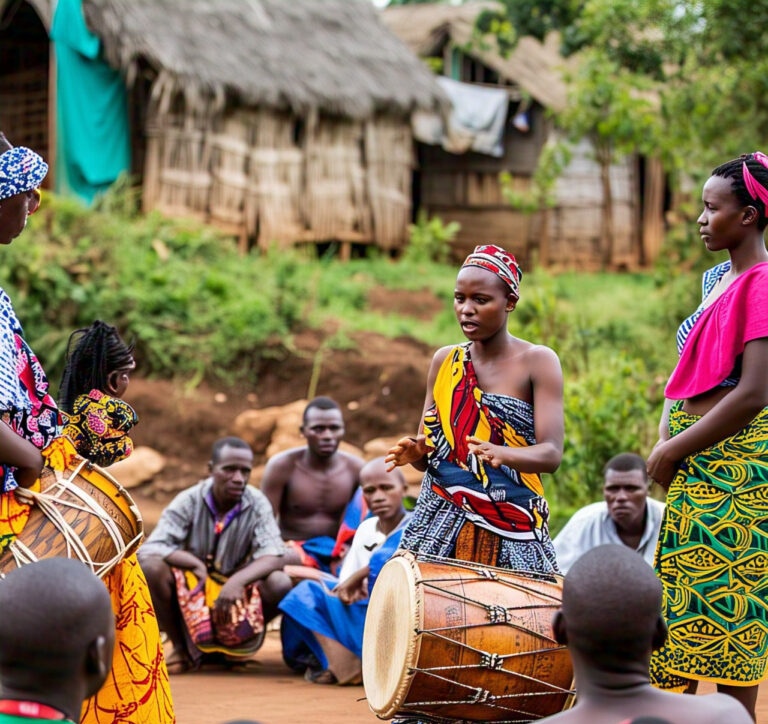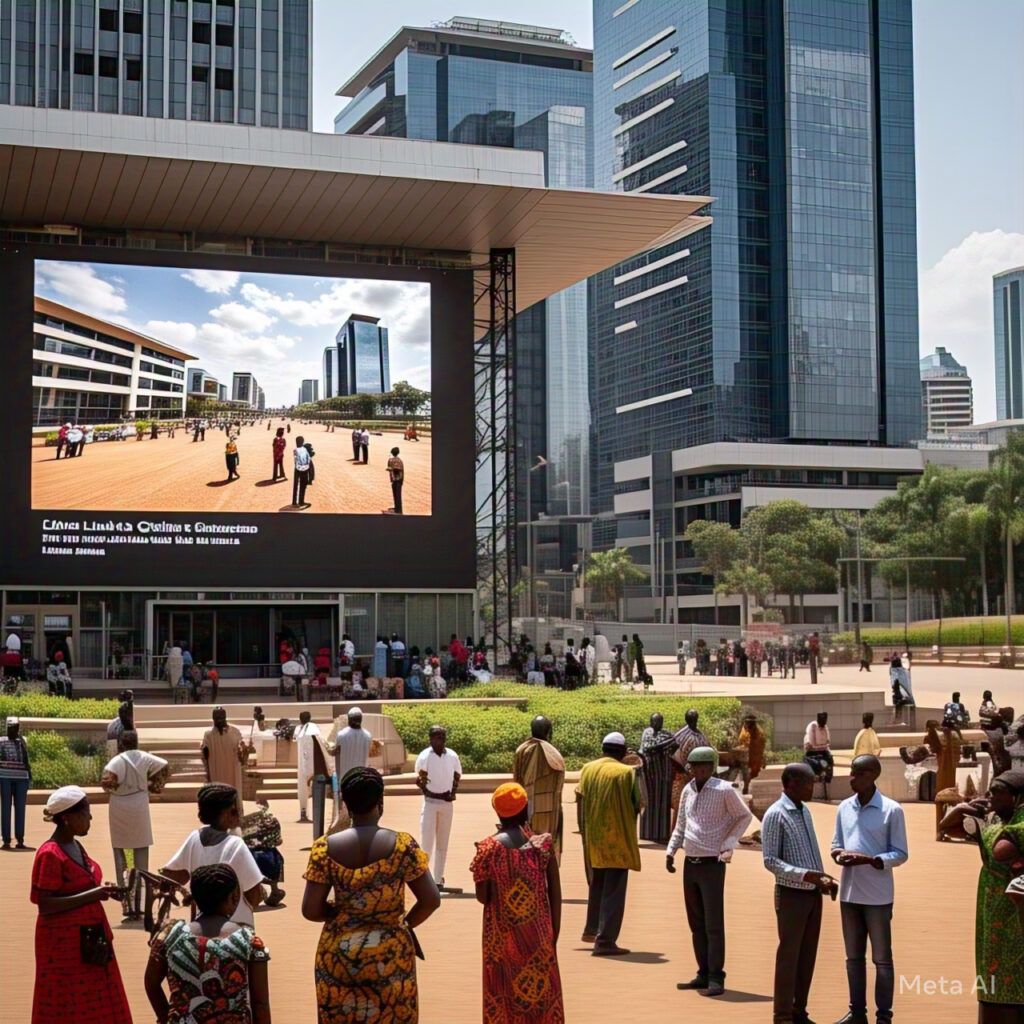Why Culture-led Climate Storytelling in East Africa is the New Paradigm
Climate change is not just an environmental issue, but a cultural and existential threat to East Africa’s communities, traditions, and way of life.
By E. R. Umukoro
Akello’s farm in Bunyangabu District, Uganda, was once a thriving agricultural haven. But after being advised to cut down trees and burn them to clear land for cultivation, her soil began to degrade, and her crop yields decreased. “I was told that trees suck water from the ground and this would affect my crops,” she said. However, this practice has led to soil degradation, reduced fertility, and decreased crop yields.
Akello’s story is not unique. Across East Africa, climate change is no longer a distant threat, but a harsh reality that is reshaping lives, cultures, and traditions. From the rising waters of Lake Tanganyika to the unpredictable rainfall patterns in Rwanda and Tanzania, extreme weather events are exacerbating food insecurity, economic strain, and cultural disruption.
In Burundi, oil palm farmer, Niyonzima, is struggling to cope with the flooding of his farmlands, which has resulted in significant losses and a decline in food production. “I’ve lost almost everything,” Niyonzima lamented. “These were oil palm plantations, but now everything has been flooded, destroyed by the water.”

In Rwanda, farmer, Uwimana, is grappling with unpredictable rainfall patterns, which have led to crop failures and reduced harvests. “It no longer rains as it used to,” Uwimana said. “Times have changed. It rains in September, or it rains late, and then we seed in October.”
The impact of climate change on East Africa’s food security is further compounded by cultural and traditional practices that are being disrupted. In Kenya, for example, the Maasai community is struggling to cope with the impacts of climate change on their traditional way of life. “Our livestock are dying, and our crops are failing,” said a Maasai elder. “We are struggling to survive.”
Climate change is also threatening the cultural heritage of East African communities. The destruction of forests, the adoption of modern farming practices, and the disruption of traditional livelihoods are all taking a toll on the region’s cultural fabric.
As noted by Dr. Zziwa, a climate change expert, “The majority of forestland lost is lost to agriculture and urbanisation. The overall impact is not only rising temperatures but also soil fertility, as trees supply crops with water and maintain fertility.”
These experiences highlights the need for a culture-led approach to climate change adaptation and mitigation in East Africa. It recognizes the importance of traditional knowledge, cultural practices, and community-led initiatives in addressing the impacts of climate change.
Practical and Realistic Solutions using Climate-led Model of IMERCs: Innovative, Multi-stakeholder, Effective, Responsive, and Community-led, offers practical and realistic solutions to address the impacts of climate change in East Africa. Here are some solutions tailored to each situation:
Akello’s Farm in Uganda
- Agroforestry: Implement agroforestry practices that integrate trees into farming systems, promoting soil conservation, fertility, and biodiversity.
- Community-led Extension Services: Establish community-led extension services that provide training and support to farmers on climate-resilient agricultural practices.
- Soil Conservation: Implement soil conservation measures such as terracing, contour farming, and mulching to reduce soil erosion and improve fertility.

Embracing Heritage, Combating Climate Change through Culture-led Storytelling in East Africa
Niyonzima’s Oil Palm Farm in Burundi
- Flood-Resilient Farming: Promote flood-resilient farming practices, such as raised bed farming and floating gardens, to reduce the impact of flooding on crops.
- Diversification: Encourage diversification of crops and livelihoods to reduce dependence on a single crop and improve resilience to climate-related shocks.
- Community-led Early Warning Systems: Establish community-led early warning systems to alert farmers of impending floods and enable them to take necessary precautions.
Uwimana’s Farm in Rwanda
- Climate-Smart Agriculture: Implement climate-smart agriculture practices, such as conservation agriculture and agroforestry, to improve soil health and reduce the impact of unpredictable rainfall patterns.
- Irrigation Systems: Establish irrigation systems that enable farmers to access water during dry periods and reduce dependence on rainfall.
- Crop Insurance: Introduce crop insurance programs to protect farmers from crop failures and losses due to climate-related events.
Maasai Community in Kenya
- Climate-Resilient Livestock Management: Promote climate-resilient livestock management practices, such as rotational grazing and conservation of grazing lands, to improve the health and productivity of livestock.
- Diversification of Livelihoods: Encourage diversification of livelihoods, such as ecotourism and sustainable wildlife management, to reduce dependence on livestock and improve resilience to climate-related shocks.
- Community-led Conservation: Establish community-led conservation initiatives that promote the conservation of natural resources and protect cultural heritage.
Regional and National Level
- Policy Support: Provide policy support for climate-resilient agriculture and community-led initiatives, including the development of climate-resilient agricultural policies and programs.
- Capacity Building: Build the capacity of farmers, communities, and local governments to implement climate-resilient practices and initiatives.
- Climate Finance: Mobilize climate finance to support community-led initiatives and climate-resilient agriculture practices, including the establishment of climate-resilient infrastructure and early warning systems.
By implementing these solutions, East African communities can build resilience to climate change, protect their cultural heritage, and promote sustainable development.





Comments